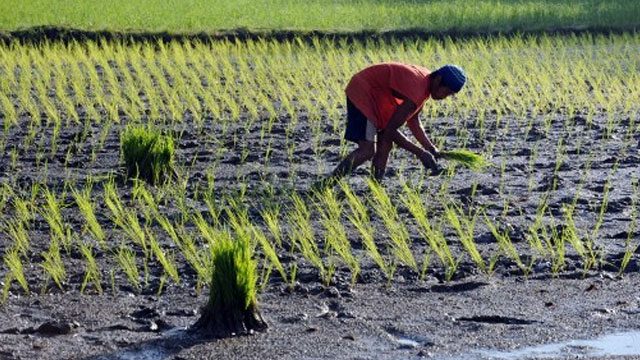SUMMARY
This is AI generated summarization, which may have errors. For context, always refer to the full article.

MANILA, Philippines – The efficient use of high level technologies and generated research data go hand-in-hand in ensuring food security and reducing food spoilage across the globe.
Panelists emphasized this point during the Asian Development Bank (ADB)’s Food Security Forum held from June 22 to 24 at the ADB Headquarters in Manila.
Speakers from various agriculture-related organizations in the private sector and members of the academe convened to address issues on food security, agri-business, and small-scale farmers.
“We are looking to scale up involvement in the private sector and civil societies to ensure that the policy gaps are given the best technologies that can be used,” said Nichola Dyer, program manager of the Global Agriculture and Food Security Program and one of the panelists for the event.

Climate-smart innovations
It is estimated that 1.3 billion tons of food is wasted every year globally, according to the Food and Agriculture Organization (FAO) of the United Nations. In the Philippines alone, storage loss of grains is pegged at 5-10%, much higher than the normal average of 0.25%.
To counter this wastage, one company has developed a grain “Superbag” which is a heat-resistant bag that can store 60 to 70 kilograms of grains to preserve and reduce loss by spoilage. Superbag a joint project between GrainPro Philippines, Inc. and the International Rice Research Institute (IRRI), targets this problem. GrainPro has sold millions of these Superbag. But it says the product needs to be made in a larger scale to effect change in food security.
Such a project also addresses the effects of climate change on the production, distribution, and storage of food.
Climate change
Climate change also affects the food supply by reducing crop yields, increasing the growth of weeds in farmlands, and by stunting the growth of crops.
Efforts to reduce the impact of climate change on agriculture are currently underway. For instance, in 2013, Cambodia signed a $70 million climate-smart agriculture initiative with ADB called the Climate-Resilient Rice Commercialization Sector Development Program. The project includes seeds that are better adapted to Cambodia’s climate.
“There is a strong need to support countries that promote climate-smart agriculture, both financially and technically as a way to introduce new technologies,” said Dyer.
Knowledge generation
The forum also tackled the generation of data that can be used for policy-making. While the private sector can provide interventions in the agriculture sector, they are still limited by the existing policies in each country.
“Technology is used to develop data and data is a great way of changing behaviors. Data needs to be analyzed,” said Professor David Morrison of Murdoch University in Perth, Australia.
“Data available in the Philippines would help the government understand why small-scale farmers must be granted incentives and improved rental conditions,” said Ma. Estrella Penunia of the Asian Farmers’ Association.
“We must consider small-scale farmers as real partners for sustainable technologies,” added Penunia.
Morisson added that getting politicians to understand data will help them implement evidence-based policies that will benefit the people.
ADB President Takehiko Nakao and IRRI Director General Matthew Morell penned an agreement to scale up the dissemination of research on agricultural technologies during the forum. With the agreement on the table, both parties will hold annual consultations to review and align their activities in expanding climate-smart agriculture and technologies. – Rappler.com
Arra Francia is a Rappler intern from UP Diliman.
Add a comment
How does this make you feel?
There are no comments yet. Add your comment to start the conversation.